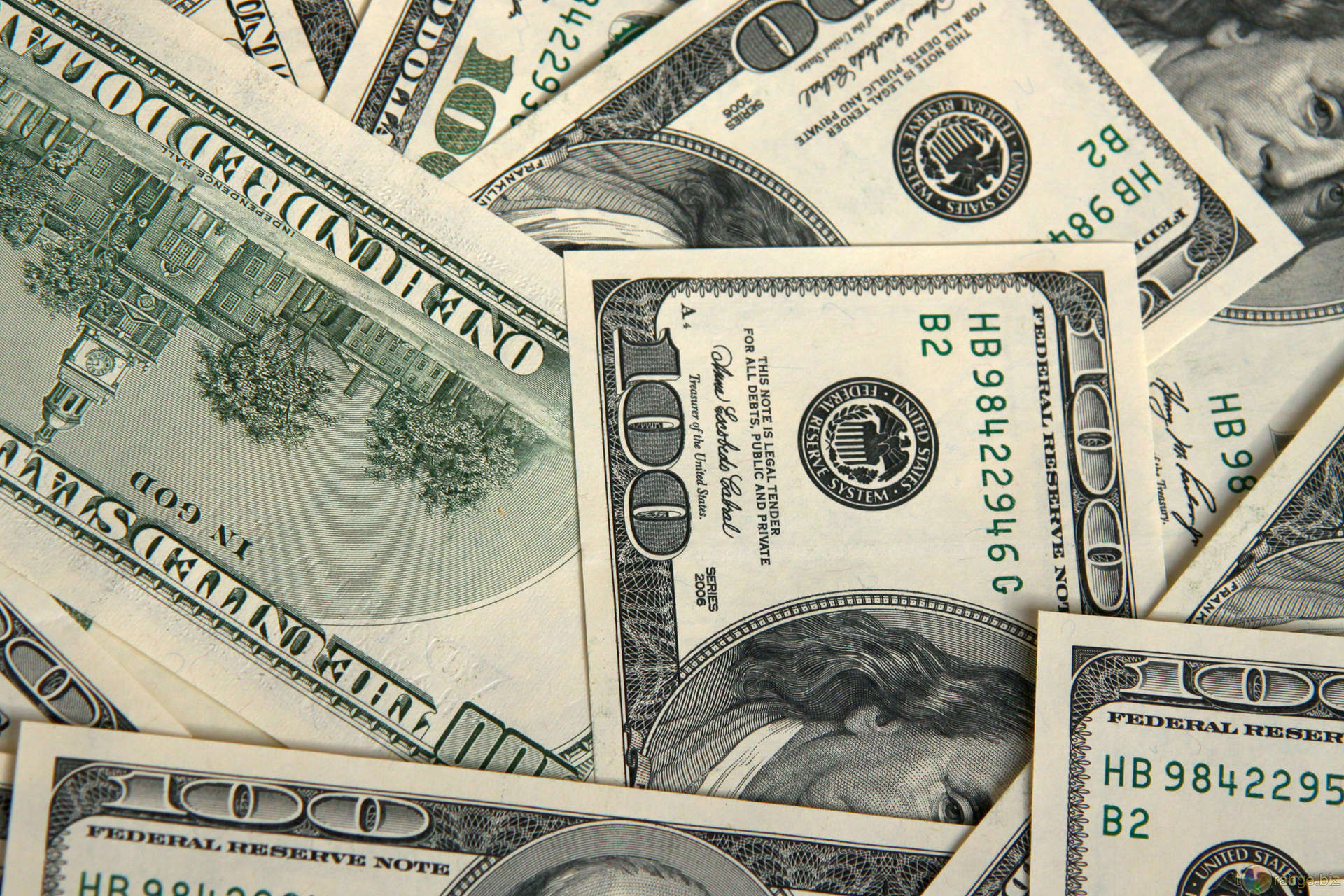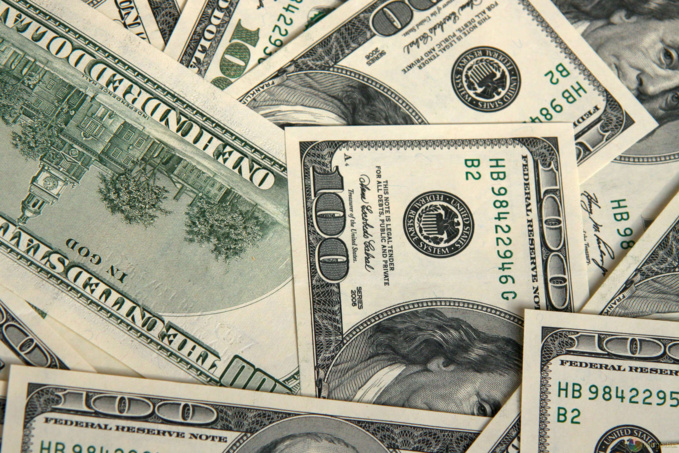The IMF’s data show that there is no hope for repelling the dominance of the US dollar. The reserve currency still does not exist and is not foreseeable in the foreseeable future.
On the contrary, the dollar has once again strengthened its position as the leading world currency. At the end of 2016, the world’s central banks have had almost five trillion dollars. At the same time, 64% of all foreign exchange reserves have been kept in dollars. After three quarters of falling, the dollar regained its strength in the same quarter when Donald Trump was elected President of the United States.
The growth is noteworthy because in October of the last year the Chinese yuan entered the IMF currency basket and thereby officially became the fifth reserve currency and a new competitor to the dollar. However, the indicators now are showing an almost shameful situation for China.
Issue banks invested almost $ 84.5 billion in Chinese national money. The yuan accounts for exactly 1.1% of global foreign exchange reserves. Also, the competition for the dollar in Europe has weakened. Share of the euro in reserves once again slid from 19.74% to below 20%. This is the lowest rate after 2015; just a little bit and the indicator would have fallen to the lowest point for 14 years.
"The debt crisis in Europe and the negative interest of the European Central Bank have undermined the attractiveness of the euro as a global reserve currency," says Lee Hardman, a currency strategist at Bank-of-Tokyo-Mitsubishi UFJ. "The dollar remains uncontested in this situation. The European dream of a world leading currency seems unrealistic. If we proceed from the economy’s efficiency, the dollar should account for only 44% of the global foreign exchange reserves, and the euro, on the contrary – for exactly one-third. This is calculated by Deutsche Bank. However, nobody expects that this level will be achieved so quickly. It should already be a challenge to win back the old highest figure in 28% of 2009," says Hardman.
At the same time, the euro still has been winning in portfolio of banks after its appearance. After many years of the dollar’s dominance, portfolio managers faced a choice of alternatives. The euro started to turn from a real rival to the dollar to a second-class crisis currency precisely when the euro zone's debt crisis began.
In the fall of 2009, Greece was forced to admit that its data on debts were embellished. This is how the policy of the issuing banks began, which also harmed the euro’s influence in the world.
Meanwhile, Beijing again was severely defeated in its efforts to develop the yuan to the leading currency. "China is the second largest economy in the world, but its currency accounts for only one percent of reserves. This is clearly not the way to a first-class global currency", says Eswar Prasad, a professor at Cornell University, who previously led the Chinese department at the IMF.
According to Deutsche Bank estimates, the yuan should be - in proportion to economic performance - equal to 18% of reserves. However, deposit managers at global central banks do not believe in politically promoted currencies. Obviously, they fear that the Communist Party will again devalue the yuan, just like in August 2015, if its own economy becomes unstable. "No one wants a reserve currency that is overvalued and, possibly, will be further depreciated", says Sebastien Galy, a currency expert at Deutsche Bank.
It is noteworthy that the emissive banks have not yet followed the IMF, and are keeping their reserves in accordance with special drawing rights. The Chinese currency still covers eleven percent there.
Thus, the dollar seems to retain its "excessive privilege", as former finance minister and French President Valérie Giscard d'Estaing once called it. He hinted at America, which pretty much used its status of the world's leading currency. Its advantages include the fact that the US, despite its high debts, still enjoys AAA bonitet. The dollar’s dominance makes it easier for Americans to make debts in international markets. Since they themselves can print money, the risk of state bankruptcy is low.
However, the unpredictable president Trump could shake the confidence in the dollar. This will happen if he deliberately reduces value of the US currency or commences a trade war to fulfill his primary goal, creating more jobs in the country. Then, leaders of the monetary institutions will have to look for an alternative to avoid risk.
source: www.welt.de
On the contrary, the dollar has once again strengthened its position as the leading world currency. At the end of 2016, the world’s central banks have had almost five trillion dollars. At the same time, 64% of all foreign exchange reserves have been kept in dollars. After three quarters of falling, the dollar regained its strength in the same quarter when Donald Trump was elected President of the United States.
The growth is noteworthy because in October of the last year the Chinese yuan entered the IMF currency basket and thereby officially became the fifth reserve currency and a new competitor to the dollar. However, the indicators now are showing an almost shameful situation for China.
Issue banks invested almost $ 84.5 billion in Chinese national money. The yuan accounts for exactly 1.1% of global foreign exchange reserves. Also, the competition for the dollar in Europe has weakened. Share of the euro in reserves once again slid from 19.74% to below 20%. This is the lowest rate after 2015; just a little bit and the indicator would have fallen to the lowest point for 14 years.
"The debt crisis in Europe and the negative interest of the European Central Bank have undermined the attractiveness of the euro as a global reserve currency," says Lee Hardman, a currency strategist at Bank-of-Tokyo-Mitsubishi UFJ. "The dollar remains uncontested in this situation. The European dream of a world leading currency seems unrealistic. If we proceed from the economy’s efficiency, the dollar should account for only 44% of the global foreign exchange reserves, and the euro, on the contrary – for exactly one-third. This is calculated by Deutsche Bank. However, nobody expects that this level will be achieved so quickly. It should already be a challenge to win back the old highest figure in 28% of 2009," says Hardman.
At the same time, the euro still has been winning in portfolio of banks after its appearance. After many years of the dollar’s dominance, portfolio managers faced a choice of alternatives. The euro started to turn from a real rival to the dollar to a second-class crisis currency precisely when the euro zone's debt crisis began.
In the fall of 2009, Greece was forced to admit that its data on debts were embellished. This is how the policy of the issuing banks began, which also harmed the euro’s influence in the world.
Meanwhile, Beijing again was severely defeated in its efforts to develop the yuan to the leading currency. "China is the second largest economy in the world, but its currency accounts for only one percent of reserves. This is clearly not the way to a first-class global currency", says Eswar Prasad, a professor at Cornell University, who previously led the Chinese department at the IMF.
According to Deutsche Bank estimates, the yuan should be - in proportion to economic performance - equal to 18% of reserves. However, deposit managers at global central banks do not believe in politically promoted currencies. Obviously, they fear that the Communist Party will again devalue the yuan, just like in August 2015, if its own economy becomes unstable. "No one wants a reserve currency that is overvalued and, possibly, will be further depreciated", says Sebastien Galy, a currency expert at Deutsche Bank.
It is noteworthy that the emissive banks have not yet followed the IMF, and are keeping their reserves in accordance with special drawing rights. The Chinese currency still covers eleven percent there.
Thus, the dollar seems to retain its "excessive privilege", as former finance minister and French President Valérie Giscard d'Estaing once called it. He hinted at America, which pretty much used its status of the world's leading currency. Its advantages include the fact that the US, despite its high debts, still enjoys AAA bonitet. The dollar’s dominance makes it easier for Americans to make debts in international markets. Since they themselves can print money, the risk of state bankruptcy is low.
However, the unpredictable president Trump could shake the confidence in the dollar. This will happen if he deliberately reduces value of the US currency or commences a trade war to fulfill his primary goal, creating more jobs in the country. Then, leaders of the monetary institutions will have to look for an alternative to avoid risk.
source: www.welt.de



















